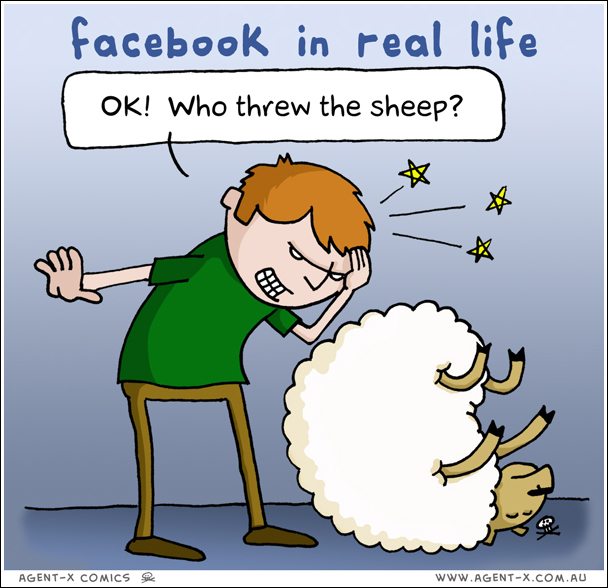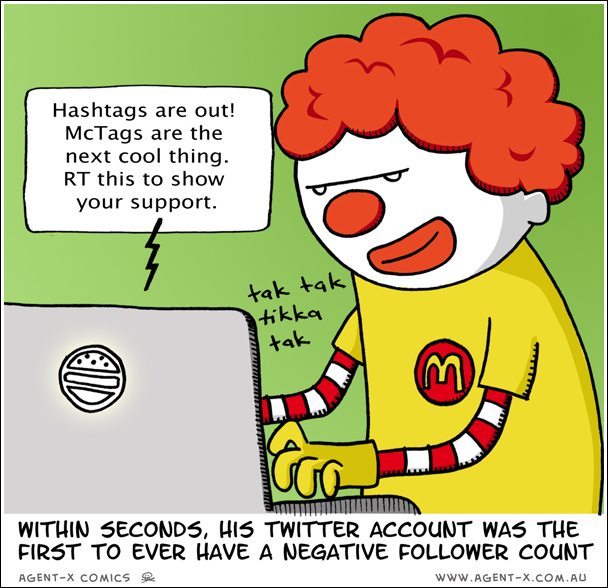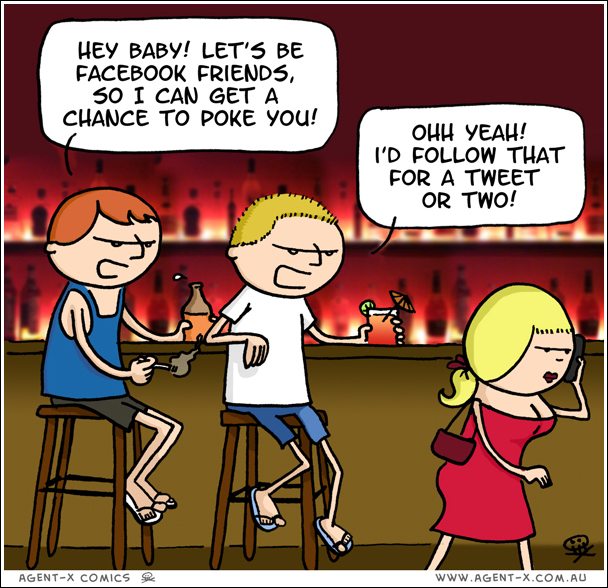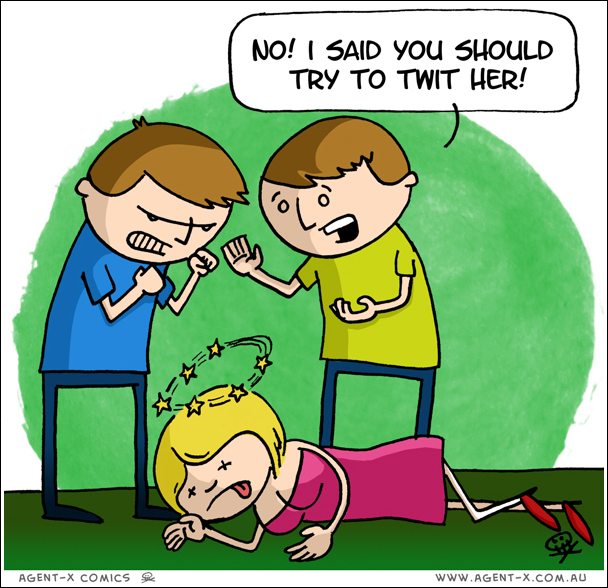
Have you ever wondered what would happen if you did the things that you do in facebook, in real life?
Obviously, this comic is a continuation of the theme I touched on in my previous comic (see here).
Sometimes, the things that we now do online seem so normal, but if you take them out of the context of where we perform these actions, they seem totally ridiculous.
I suppose that this is one aspect of online culture which is both a benefit & a drawback, depending on how you view it.
I am not going to say much more here, except to warn you that there may be more “Facebook in real life” comics in the future.
If you have an idea of a facebook activity that you would like to see done as a comic, please leave me a comment and let me know.
I do not guarantee to draw every idea I get, but I am sure something will be hilarious enough to catch the “doodle treatment”.
![]()
 |
Due to popular demand (yes, really.) I have begun adding some of my comics to t-shirts and other products, through Zazzle.
The products I have created so far are on the ‘MOMENTOS‘ page, for your perusing pleasure. More will be added as time goes on. Please also feel free to request any of my comics on a shirt, and I will be happy to make them available in the store. |
[twitter]


